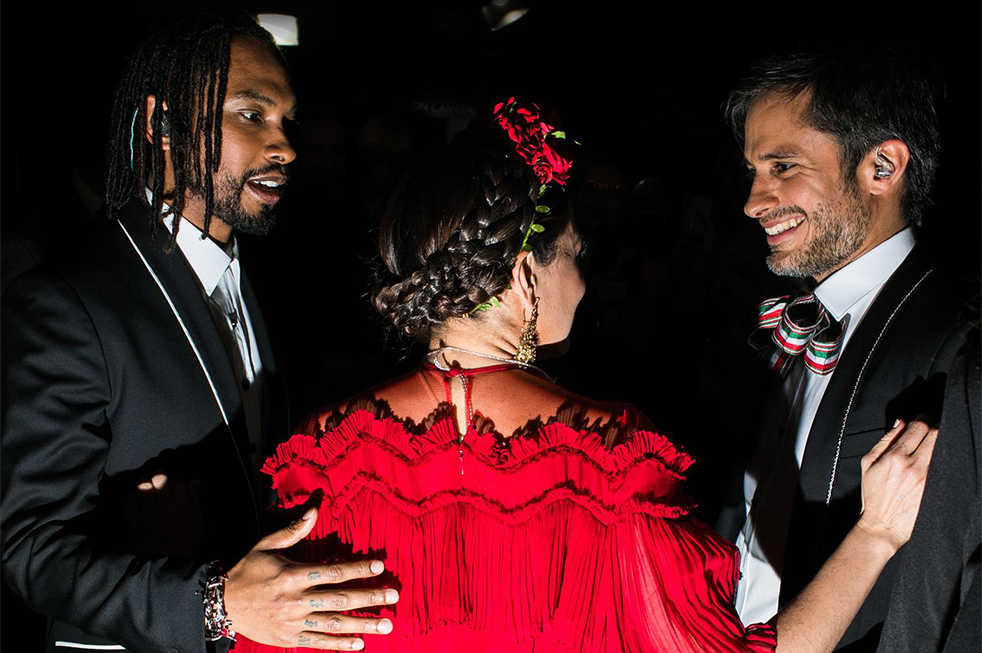“If I fall over, pick me up, ‘cause I’ve got some things to say.”
As Frances McDormand took the stage to accept her Oscar for Best Actress, she involuntarily captured the spirit of the tumultuous year that Hollywood just endured. Last Sunday was the first Oscars ceremony in the #MeToo era, a movement that shook the filmmaking industry to its core.
While many were wondering how Hollywood’s biggest night would address the elephant in the room, the “Three Billboards Outside Ebbing, Missouri” star’s speech laid a veritable cornerstone for a new, post-#MeToo Hollywood in which women are
allowed to thrive as equals and will no longer suffer rampant systemic abuse.
“If I may be so honored to have all the female nominees in every category stand with me in this room tonight,” McDormand boomed from the stage in the Dolby Theater.
“The actors, the filmmakers, the producers, the directors, the writers, the cinematographers, the composers, the songwriters, the designers. Look around ladies and gentlemen, because we all have stories to tell and projects we need financed. Don’t talk to us about it at the parties tonight. Invite us into your office, or come to ours, whatever suits you best, and we will tell you all about them.”
Keeping with the night’s theme of inclusivity, presenters put a heavy emphasis on the contributions of Hispanic artists. Pixar’s “Coco” won awards for Best Animated Feature and Best Original Song for “Remember Me,” and a rousing performance of the latter was introduced by a speech extolling the contributions of immigrants to the world of art.
The night’s top prize also went to a product of Mexico: the Guillermo del Toro-directed “The Shape of Water” received the award for Best Picture. The fantasy auteur also took home the Academy Award for Best Director, making him just the third Mexican to win in the category.
Other highlights included Jordan Peele winning Best Original Screenplay for his unique horror film “Get Out,” an honor never before won by an African-American. Greta Gerwig also became the fifth ever female nominee for Best Director and the first female director to be nominated for any category in eight years. While her film “Lady Bird” ended the night Oscar-less, its presence as a contender marked the beginning of what many hope to be a trend of female recognition in the filmmaking world.
Gary Oldman beat out a talented pool of nominees to take home Best Actor for his portrayal of Winston Churchill in “The Darkest Hour.” Sam Rockwell and Allison Janney won in the Supporting categories for their roles in “Three Billboards” and “I, Tonya,” respectively. “Icarus,” the Netflix profile of the Russian doping scandal, won the award for Best Documentary Feature.
The science fiction neo-noir film “Blade Runner 2049” unsurprisingly came away with the award for Best Visual Effects, and veteran cinematographer Roger Deakins was recognized with the Best Cinematography. Christopher Nolan’s “Dunkirk” swept the post-production categories. Best Makeup went to “The Darkest Hour” while “Phantom Thread” won Best Costume Design.
Despite a few awkward moments and hamfisted political statements by host Jimmy Kimmel, this year’s Oscars made a bold yet much-needed statement about the current landscape
in Hollywood.
While this year’s ceremony indicates a bright future, the filmmaking trends of the next few years will show whether women and minorities have finally been recognized for their merits or if these shifts are simply temporary reactionary fallout from Trump and the #MeToo movement.
